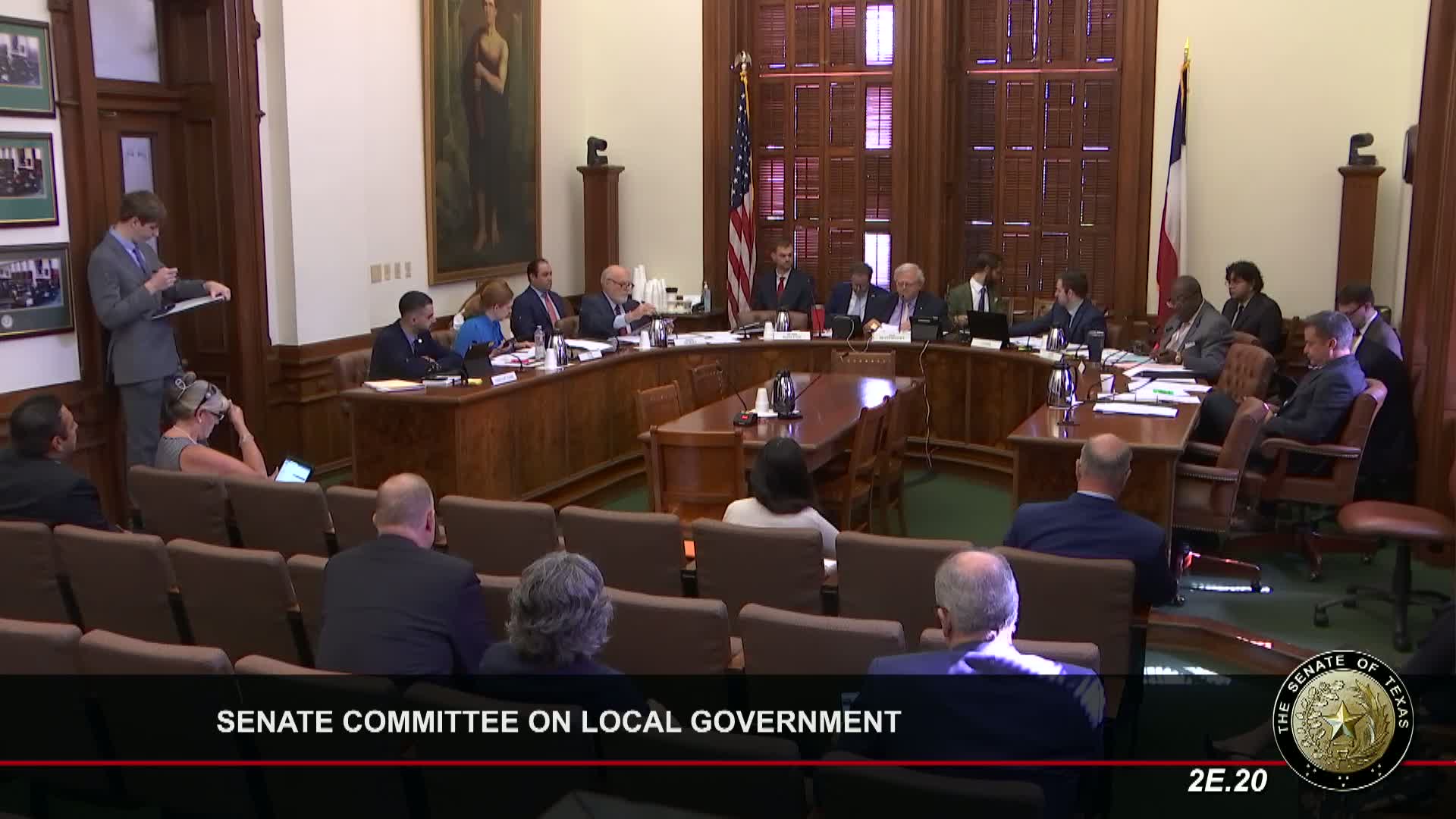Article not found
This article is no longer available. But don't worry—we've gathered other articles that discuss the same topic.
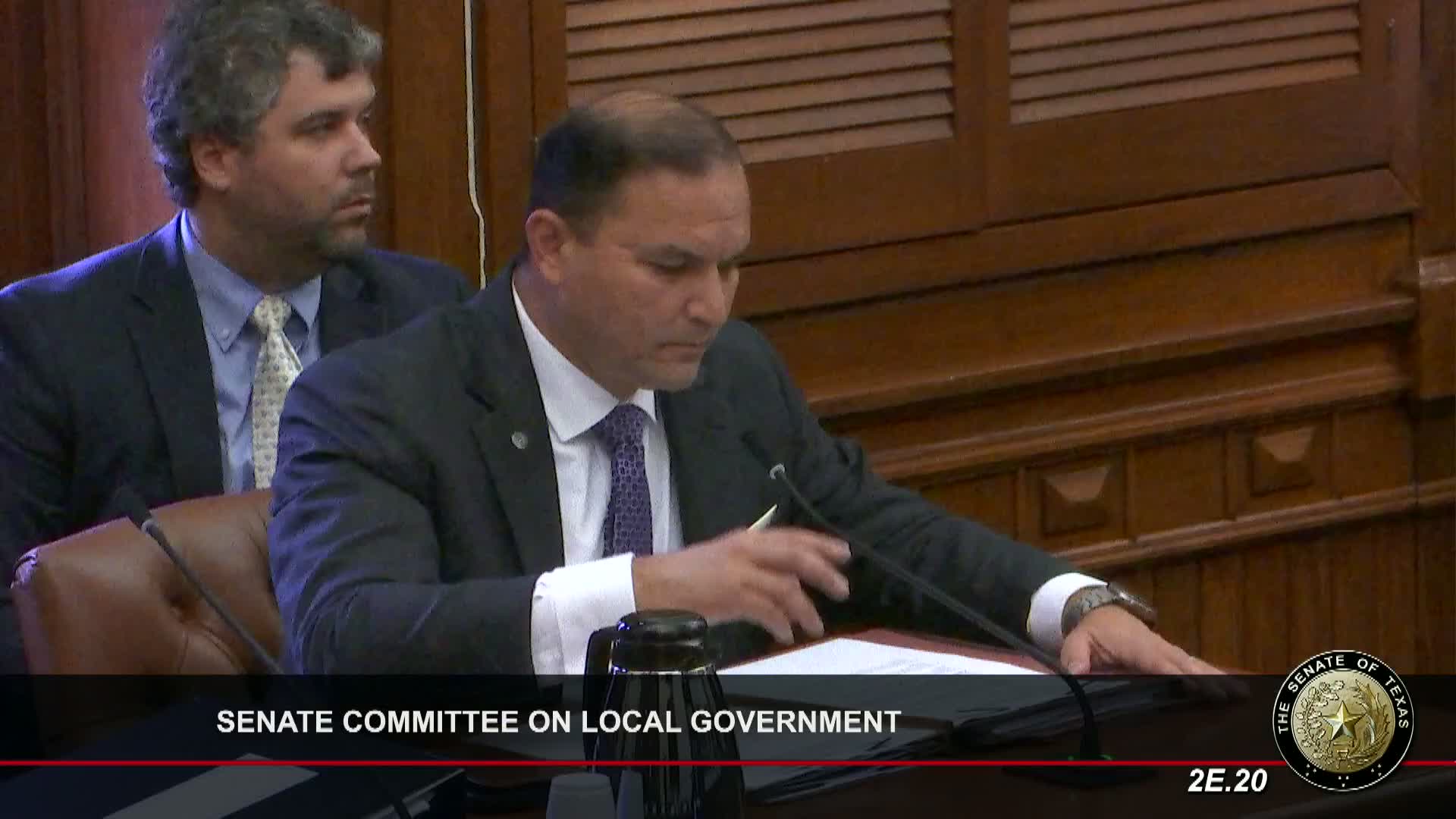
Committee advances bill clarifying surviving‑spouse property tax exemption for veterans covered by PACT Act
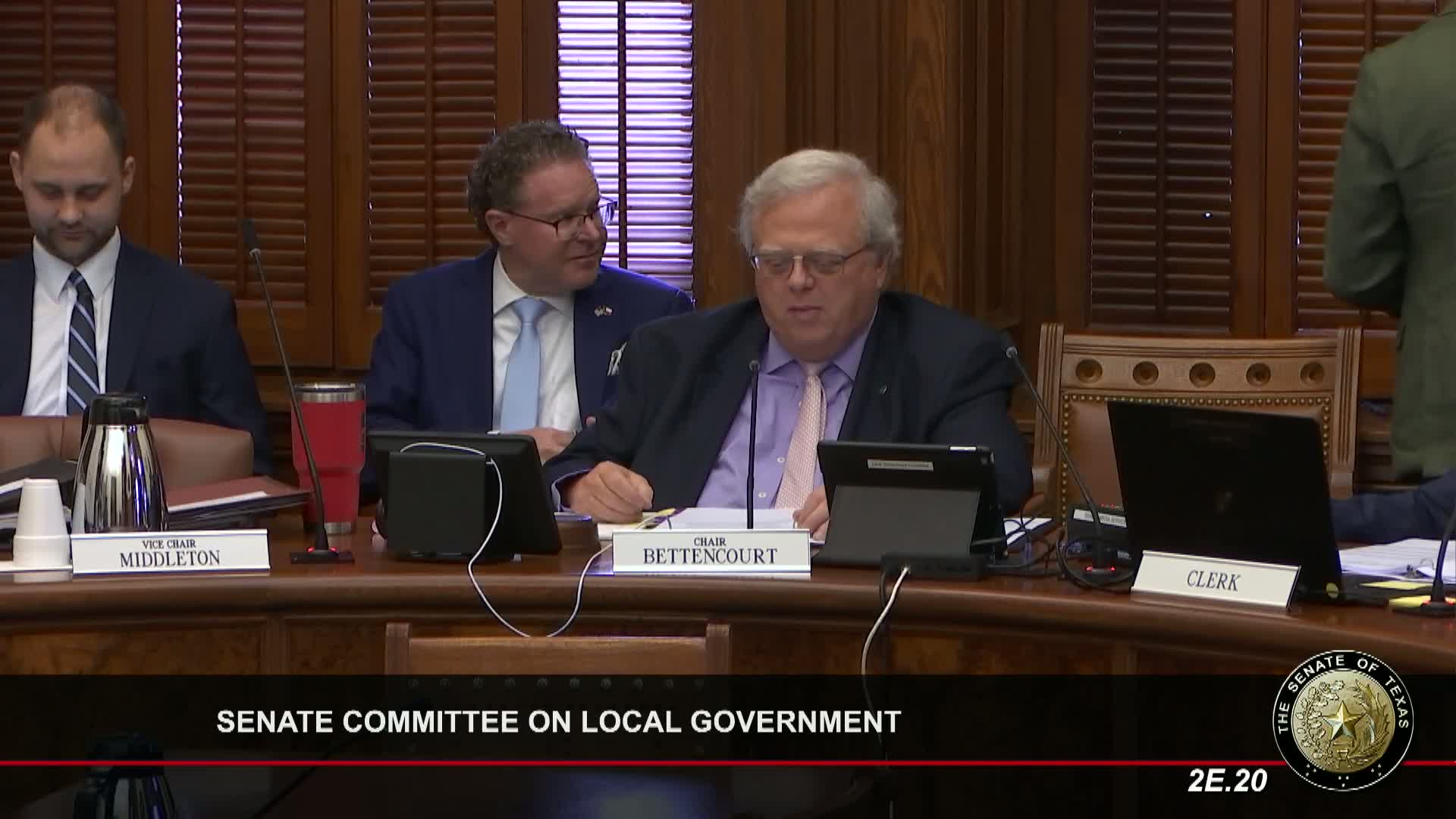
Panel hears sharp debate over Fort Worth carve-out to ETJ-release law
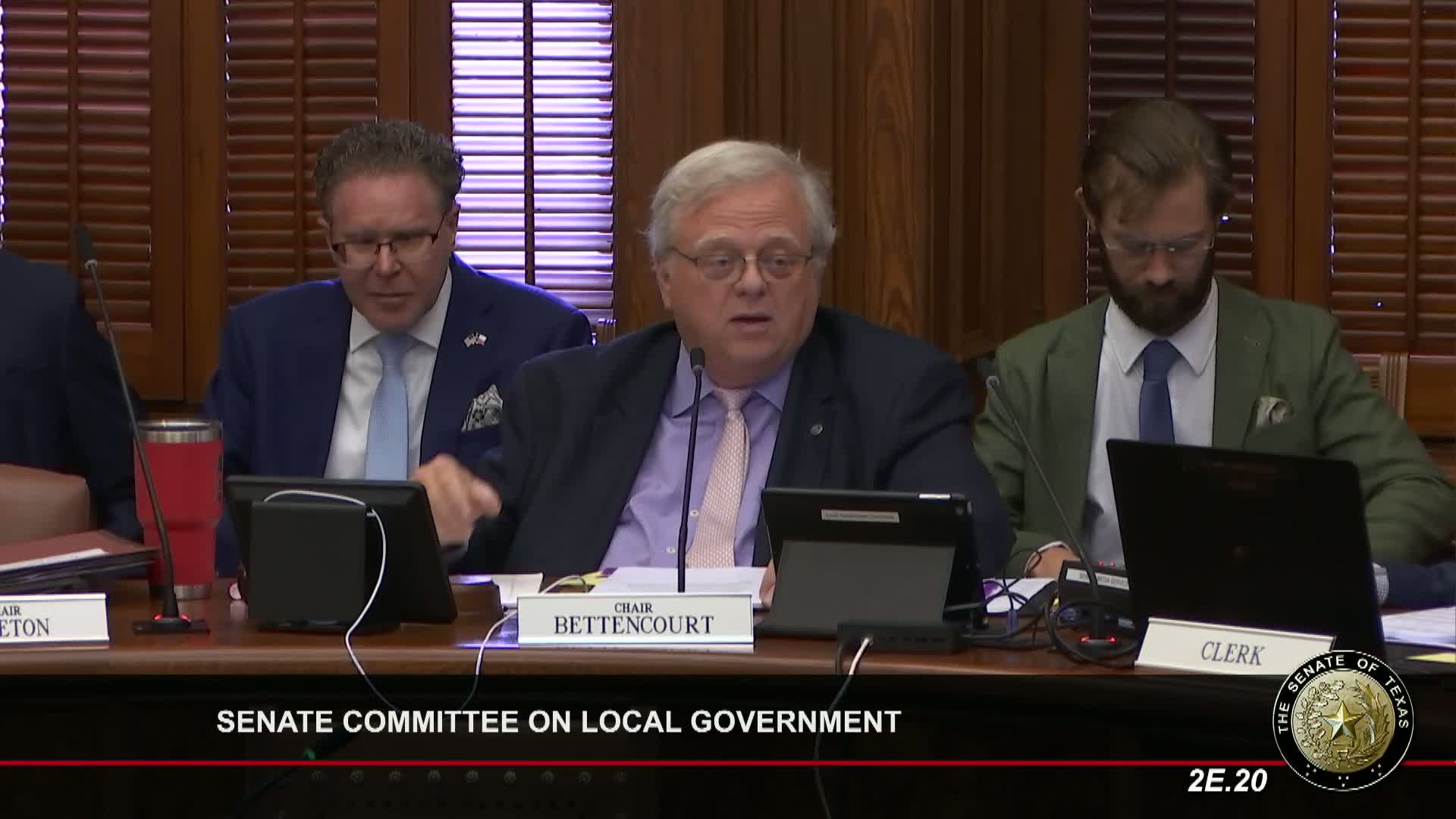
Senate committee considers narrow fix to century‑old border‑county subdivision rules
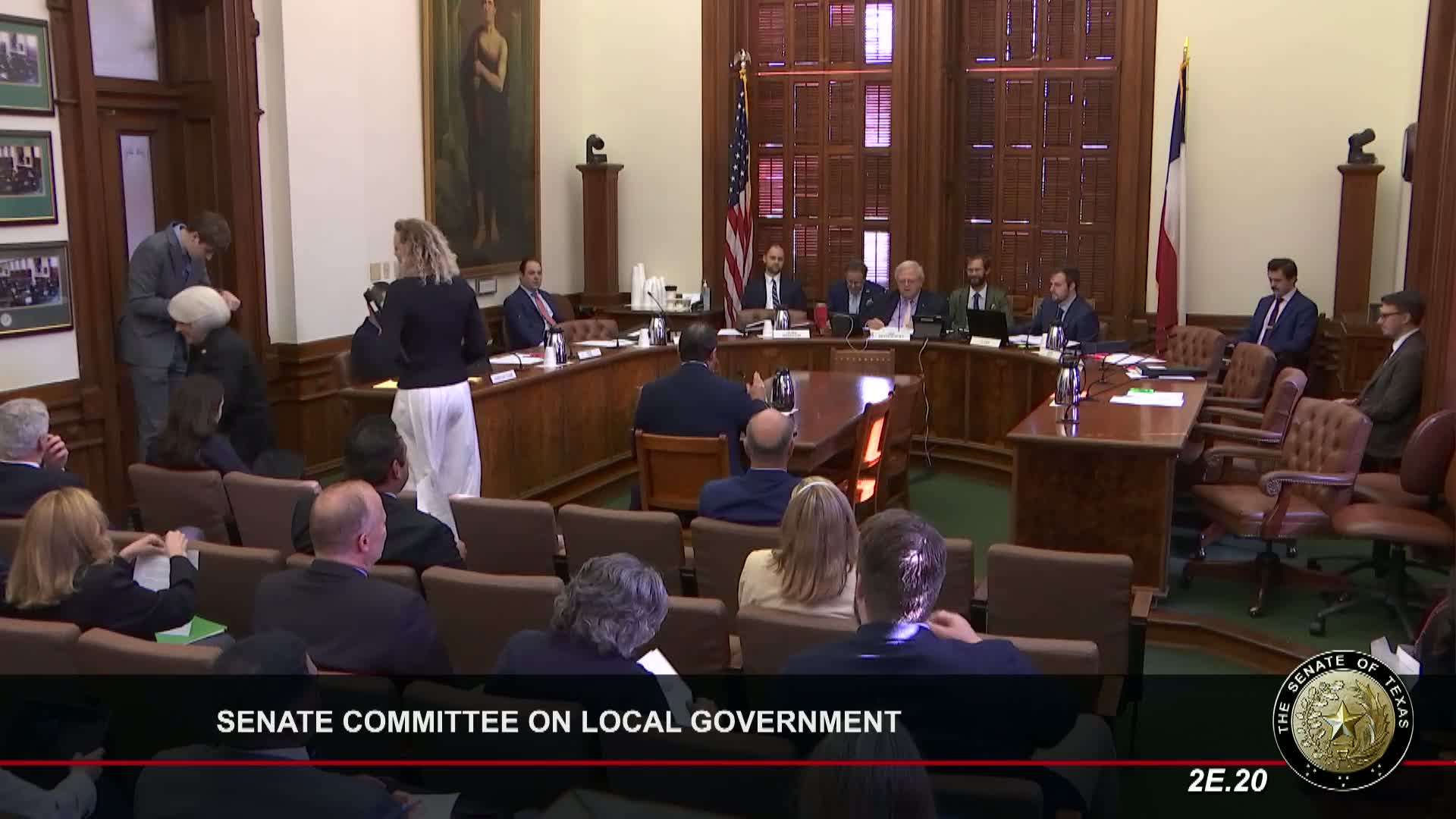
Committee hears bill letting large counties use county inspectors for county buildings
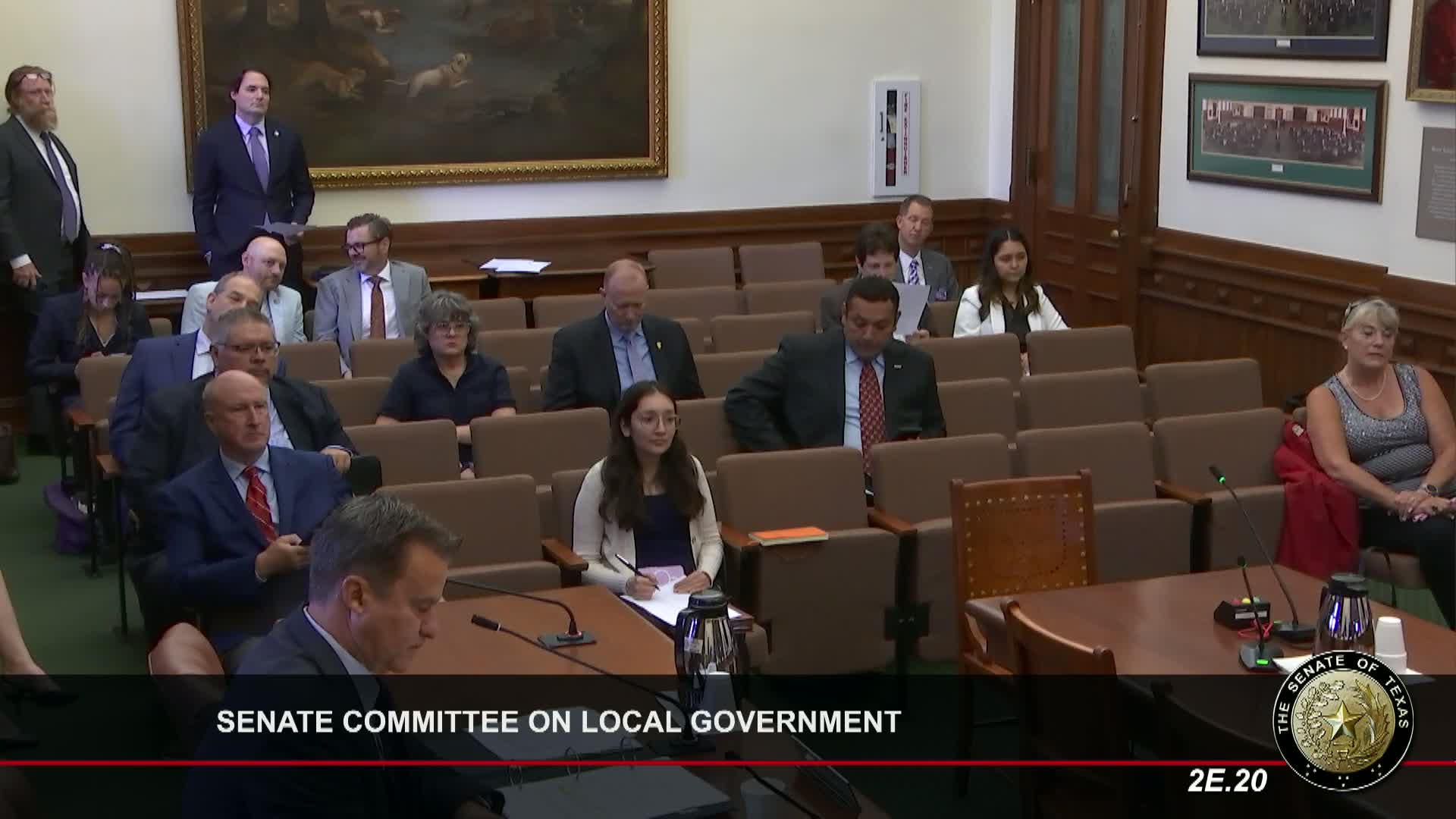
Committee advances bill to create statewide database of local bond elections
